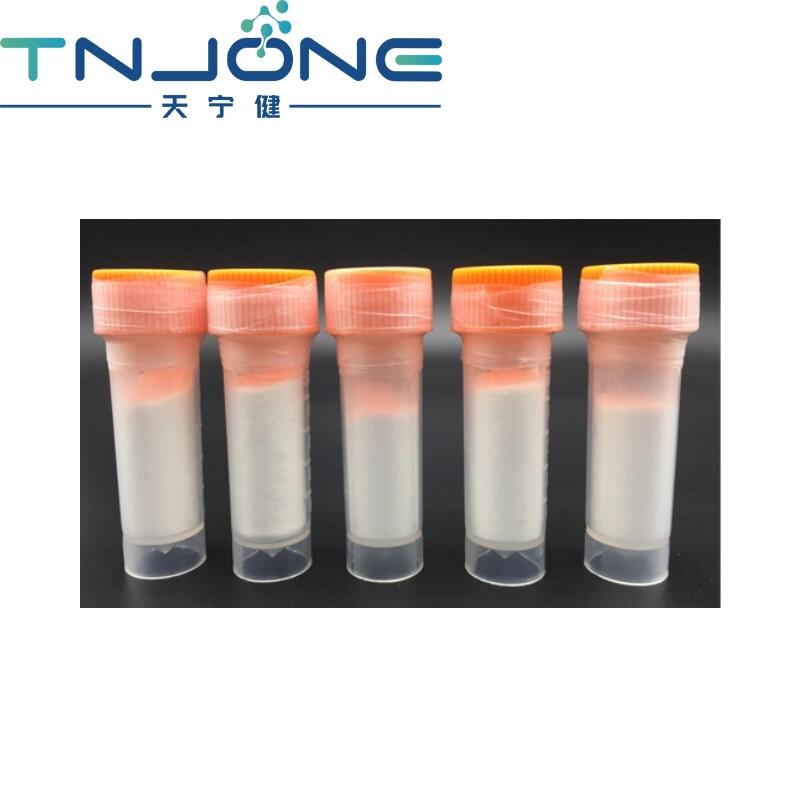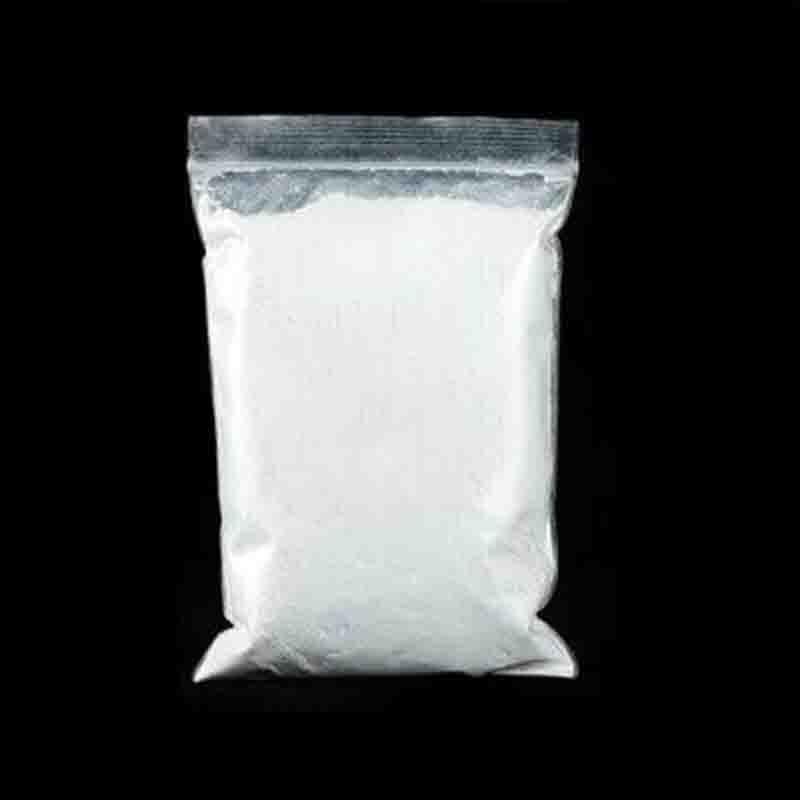-
Categories
-
Pharmaceutical Intermediates
-
Active Pharmaceutical Ingredients
-
Food Additives
- Industrial Coatings
- Agrochemicals
- Dyes and Pigments
- Surfactant
- Flavors and Fragrances
- Chemical Reagents
- Catalyst and Auxiliary
- Natural Products
- Inorganic Chemistry
-
Organic Chemistry
-
Biochemical Engineering
- Analytical Chemistry
-
Cosmetic Ingredient
- Water Treatment Chemical
-
Pharmaceutical Intermediates
Promotion
ECHEMI Mall
Wholesale
Weekly Price
Exhibition
News
-
Trade Service
png" target="_blank">
png" target="_blank">I don’t know if there is such a person around you.
Everyone eats three meals a day and eats the same food.
Their weight increases quietly with age, but some people can’t get fat even if they eat it.
Why is this?
Everyone eats three meals a day and eats the same food.
Their weight increases quietly with age, but some people can’t get fat even if they eat it.
Why is this?
Recent studies have shown that the protein content in the diet is closely related to the occurrence of energy metabolism and obesity.
The protein in the diet contains essential and non-essential amino acids.
Among the essential amino acids, leucine, isoleucine and valine are called branched chain amino acids (BCAA), which can stimulate the lipolysis of white adipose tissue (WAT).
Studies have shown that reducing the intake of BCAA is mainly to promote metabolism by improving glucose tolerance.
The protein in the diet contains essential and non-essential amino acids.
Among the essential amino acids, leucine, isoleucine and valine are called branched chain amino acids (BCAA), which can stimulate the lipolysis of white adipose tissue (WAT).
Studies have shown that reducing the intake of BCAA is mainly to promote metabolism by improving glucose tolerance.
Recently, researchers from the John R.
Speakman research group of the Institute of bioon.
com/course_video/zhong-guo-ren-qun-ying-yang-he-yi-chuan-yin416058.
html">Genetics and Developmental Biology of the Chinese Academy of Sciences published a titled "Very-low-protein diets lead to reduced food intake and weight loss" in the top journal "Cell Metabolism", linked to The article "inhibition of hypothalamic mTOR signaling, in mice" reveals that a 1% protein diet can cause reduced food intake and weight loss by partially relying on hypothalamic mTOR signaling.
Speakman research group of the Institute of bioon.
com/course_video/zhong-guo-ren-qun-ying-yang-he-yi-chuan-yin416058.
html">Genetics and Developmental Biology of the Chinese Academy of Sciences published a titled "Very-low-protein diets lead to reduced food intake and weight loss" in the top journal "Cell Metabolism", linked to The article "inhibition of hypothalamic mTOR signaling, in mice" reveals that a 1% protein diet can cause reduced food intake and weight loss by partially relying on hypothalamic mTOR signaling.
The researchers set the protein content of the diet from 1% to 20%, fed the mice for 12 weeks, and found that food intake, body weight, and fat weight were positively correlated with the protein content of the diet.
Compared with the 20% bioon.
com/tags/%E8%9B%8B%E7%99%BD%E8%B4%A8%E7%BB%84/" target="_blank">protein group , the fat weight and body weight of the low protein group were significantly reduced.
Among them, the weight loss of liver, pancreas, WAT, brown adipose tissue and reproductive organs was more obvious.
In contrast, the weight of vital organs, including the brain, heart, kidneys, lungs, and digestive tract, did not change much.
Compared with the 20% bioon.
com/tags/%E8%9B%8B%E7%99%BD%E8%B4%A8%E7%BB%84/" target="_blank">protein group , the fat weight and body weight of the low protein group were significantly reduced.
Among them, the weight loss of liver, pancreas, WAT, brown adipose tissue and reproductive organs was more obvious.
In contrast, the weight of vital organs, including the brain, heart, kidneys, lungs, and digestive tract, did not change much.
To investigate whether the decrease in the number of fat cells and the decrease in liver lipid droplets in the low-protein group were the result of decreased fat formation and increased fatty acid oxidation, the researchers examined the expression levels of mRNAs associated with these processes in each tissue.
The results showed that in the low protein group, the fatty acid and amino acid metabolic pathways in the liver and adipose tissue were altered, and glucose tolerance increased.
However, a low-protein diet will not cause weakness or improve memory.
The results showed that in the low protein group, the fatty acid and amino acid metabolic pathways in the liver and adipose tissue were altered, and glucose tolerance increased.
However, a low-protein diet will not cause weakness or improve memory.
Subsequently, in order to investigate whether the reduction in food intake from a low-protein diet is related to signals from the hypothalamic hunger-related pathways, the researchers performed RNA sequencing (RNA-seq) analysis on the hypothalamus.
The results showed that low-protein diet can activate hypothalamic hunger signals and inhibit mTOR signals, thereby leading to reduced food intake, weight loss and promotion of fatty acid metabolism, and has nothing to do with hypothalamic GCN2, FGF21, TRPML1 and NTS mTOR signaling.
The results showed that low-protein diet can activate hypothalamic hunger signals and inhibit mTOR signals, thereby leading to reduced food intake, weight loss and promotion of fatty acid metabolism, and has nothing to do with hypothalamic GCN2, FGF21, TRPML1 and NTS mTOR signaling.
The researchers also found that a low-protein diet can also activate the metabonomic pathways in serum that are related to weight loss.
Compared with control mice, mice on a low-protein diet returned to a 20% protein diet without signs of hyperphagia.
Compared with control mice, mice on a low-protein diet returned to a 20% protein diet without signs of hyperphagia.
Overall, this study found that mice on a low-protein diet had reduced food intake, weight loss, and increased glucose tolerance, and this process relied on hypothalamic mTOR signaling.
Therefore, in the usual diet, we can try to reduce the intake of protein reasonably.
The more you eat, the thinner you are is not a dream! (bioon.
com" target="_blank">Bioon.
com)
Therefore, in the usual diet, we can try to reduce the intake of protein reasonably.
The more you eat, the thinner you are is not a dream! (bioon.
com" target="_blank">Bioon.
com)
I don’t know if there is such a person around you.
Everyone eats three meals a day and eats the same food.
Their weight increases quietly with age, but some people can’t get fat even if they eat it.
Why is this?
Everyone eats three meals a day and eats the same food.
Their weight increases quietly with age, but some people can’t get fat even if they eat it.
Why is this?
Recent studies have shown that the protein content in the diet is closely related to the occurrence of energy metabolism and obesity.
The protein in the diet contains essential and non-essential amino acids.
Among the essential amino acids, leucine, isoleucine and valine are called branched chain amino acids (BCAA), which can stimulate the lipolysis of white adipose tissue (WAT).
Studies have shown that reducing the intake of BCAA is mainly to promote metabolism by improving glucose tolerance.
The protein in the diet contains essential and non-essential amino acids.
Among the essential amino acids, leucine, isoleucine and valine are called branched chain amino acids (BCAA), which can stimulate the lipolysis of white adipose tissue (WAT).
Studies have shown that reducing the intake of BCAA is mainly to promote metabolism by improving glucose tolerance.
Recently, researchers from the John R.
Speakman research group of the Institute of bioon.
com/course_video/zhong-guo-ren-qun-ying-yang-he-yi-chuan-yin416058.
html">Genetics and Developmental Biology of the Chinese Academy of Sciences published a titled "Very-low-protein diets lead to reduced food intake and weight loss" in the top journal "Cell Metabolism", linked to The article "inhibition of hypothalamic mTOR signaling, in mice" reveals that a 1% protein diet can cause reduced food intake and weight loss by partially relying on hypothalamic mTOR signaling.
bioon. Speakman research group of the Institute of bioon.
com/course_video/zhong-guo-ren-qun-ying-yang-he-yi-chuan-yin416058.
html">Genetics and Developmental Biology of the Chinese Academy of Sciences published a titled "Very-low-protein diets lead to reduced food intake and weight loss" in the top journal "Cell Metabolism", linked to The article "inhibition of hypothalamic mTOR signaling, in mice" reveals that a 1% protein diet can cause reduced food intake and weight loss by partially relying on hypothalamic mTOR signaling.
com/course_video/zhong-guo-ren-qun-ying-yang-he-yi-chuan-yin416058.
html">Genetic
The researchers set the protein content of the diet from 1% to 20%, fed the mice for 12 weeks, and found that food intake, body weight, and fat weight were positively correlated with the protein content of the diet.
Compared with the 20% bioon.
com/tags/%E8%9B%8B%E7%99%BD%E8%B4%A8%E7%BB%84/" target="_blank">protein group , the fat weight and body weight of the low protein group were significantly reduced.
Among them, the weight loss of liver, pancreas, WAT, brown adipose tissue and reproductive organs was more obvious.
In contrast, the weight of vital organs, including the brain, heart, kidneys, lungs, and digestive tract, did not change much.
bioon. Compared with the 20% bioon.
com/tags/%E8%9B%8B%E7%99%BD%E8%B4%A8%E7%BB%84/" target="_blank">protein group , the fat weight and body weight of the low protein group were significantly reduced.
Among them, the weight loss of liver, pancreas, WAT, brown adipose tissue and reproductive organs was more obvious.
In contrast, the weight of vital organs, including the brain, heart, kidneys, lungs, and digestive tract, did not change much.
com/tags/%E8%9B%8B%E7%99%BD%E8%B4%A8%E7%BB%84/" target="_blank">Proteome
To investigate whether the decrease in the number of fat cells and the decrease in liver lipid droplets in the low-protein group were the result of decreased fat formation and increased fatty acid oxidation, the researchers examined the expression levels of mRNAs associated with these processes in each tissue.
The results showed that in the low protein group, the fatty acid and amino acid metabolic pathways in the liver and adipose tissue were altered, and glucose tolerance increased.
However, a low-protein diet will not cause weakness or improve memory.
The results showed that in the low protein group, the fatty acid and amino acid metabolic pathways in the liver and adipose tissue were altered, and glucose tolerance increased.
However, a low-protein diet will not cause weakness or improve memory.
Subsequently, in order to investigate whether the reduction in food intake from a low-protein diet is related to signals from the hypothalamic hunger-related pathways, the researchers performed RNA sequencing (RNA-seq) analysis on the hypothalamus.
The results showed that low-protein diet can activate hypothalamic hunger signals and inhibit mTOR signals, thereby leading to reduced food intake, weight loss and promotion of fatty acid metabolism, and has nothing to do with hypothalamic GCN2, FGF21, TRPML1 and NTS mTOR signaling.
The results showed that low-protein diet can activate hypothalamic hunger signals and inhibit mTOR signals, thereby leading to reduced food intake, weight loss and promotion of fatty acid metabolism, and has nothing to do with hypothalamic GCN2, FGF21, TRPML1 and NTS mTOR signaling.
The researchers also found that a low-protein diet can also activate the metabonomic pathways in serum that are related to weight loss.
Compared with control mice, mice on a low-protein diet returned to a 20% protein diet without signs of hyperphagia.
Compared with control mice, mice on a low-protein diet returned to a 20% protein diet without signs of hyperphagia.
Overall, this study found that mice on a low-protein diet had reduced food intake, weight loss, and increased glucose tolerance, and this process relied on hypothalamic mTOR signaling.
Therefore, in the usual diet, we can try to reduce the intake of protein reasonably.
The more you eat, the thinner you are is not a dream! (bioon.
com" target="_blank">Bioon.
com)
bioon. Therefore, in the usual diet, we can try to reduce the intake of protein reasonably.
The more you eat, the thinner you are is not a dream! (bioon.
com" target="_blank">Bioon.
com)
com" target="_blank">







